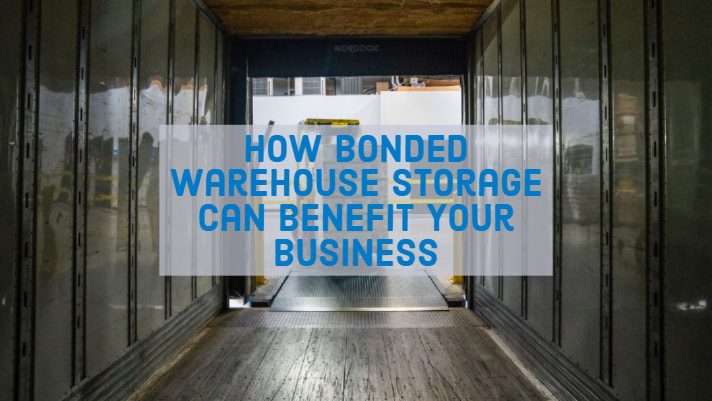2020
How Bonded Warehouse Storage Can Benefit Your Business

As reported by the Canadian Trucking Alliance, the trucking industry in Canada employs more than 260,000 drivers and 400,000 employees. This is good news for businesses that need to ship goods, as nearly two-thirds of the trade from Canada to the United States is carried by trucking companies. However, there is one key part of this process that is often overlooked: warehouse storage. While there are different types of storage for warehouses, let’s take a closer look at bonded storage in today’s post.
What is Bonded Warehouse Storage?
A bonded warehouse operates under the supervision of the countries customs agency and acts as a place to store goods while deferring payment of customs duties. This can allow companies to house imported or exported products for a foreign market in the country of business, allowing for faster local delivery without having to pay customs until the products are released.
Any products stored within a bonded warehouse can be modified on-site in preparation for local sale. These modifications can include:
- Testing
- Marking
- Packaging
- Grading
- Labelling
- Maintenance
- Dilution
- General Inspections
The Benefits of Bonded Warehouse Storage
Once the products have been transported by a container trucking company to a bonded warehouse, you can expect to receive a couple of important benefits. Because these facilities provide a secure location to store goods for foreign market sale, businesses can take their time sorting through any legal considerations while knowing their products are safe.
A couple of the most significant advantages of this can include:
- Long Term Storage Options - In Canada, goods can remain in a bonded warehouse for up to four years. This can be convenient for businesses that ship internationally, as the time it takes to get a product out won’t be as long. Some businesses also can benefit from shipping goods to a bonded warehouse for storage while waiting to sell them until the market demand is higher. This means you not only have products ready to sell in your chosen market, but you won’t have to worry about running low on supply or paying for all the customs duties upfront.
- Storage For Restricted Items - Bonded warehouses aren’t just for exporting or importing general goods; they are great for companies that import goods with certain restrictions. Companies can utilize transportation companies to move the product to the warehouse and then work on all the necessary legal work needed to be able to sell the product on the open market. This can save businesses a lot of time, as you don’t have to finish the paperwork and then wait for your goods to be brought in. They will already be stored and ready for sale.
- Customs Deferment - A lot of businesses take advantage of bonded warehouses because they allow for duty taxes and value-added taxes to be deferred until the items leave the warehouse for sale. This saves both time and money while ensuring your products are ready to go when needed.
An Advantageous Solution
In some cases, bonded warehouses will also offer direct container delivery. This means you not only get the benefit of storage but the movement of your goods once they’re in the country. If your business frequently moves goods from the U.S. and Canada, consider how storing in a bonded warehouse can benefit you. Bonded warehouses make international shipping just a little bit easier.
